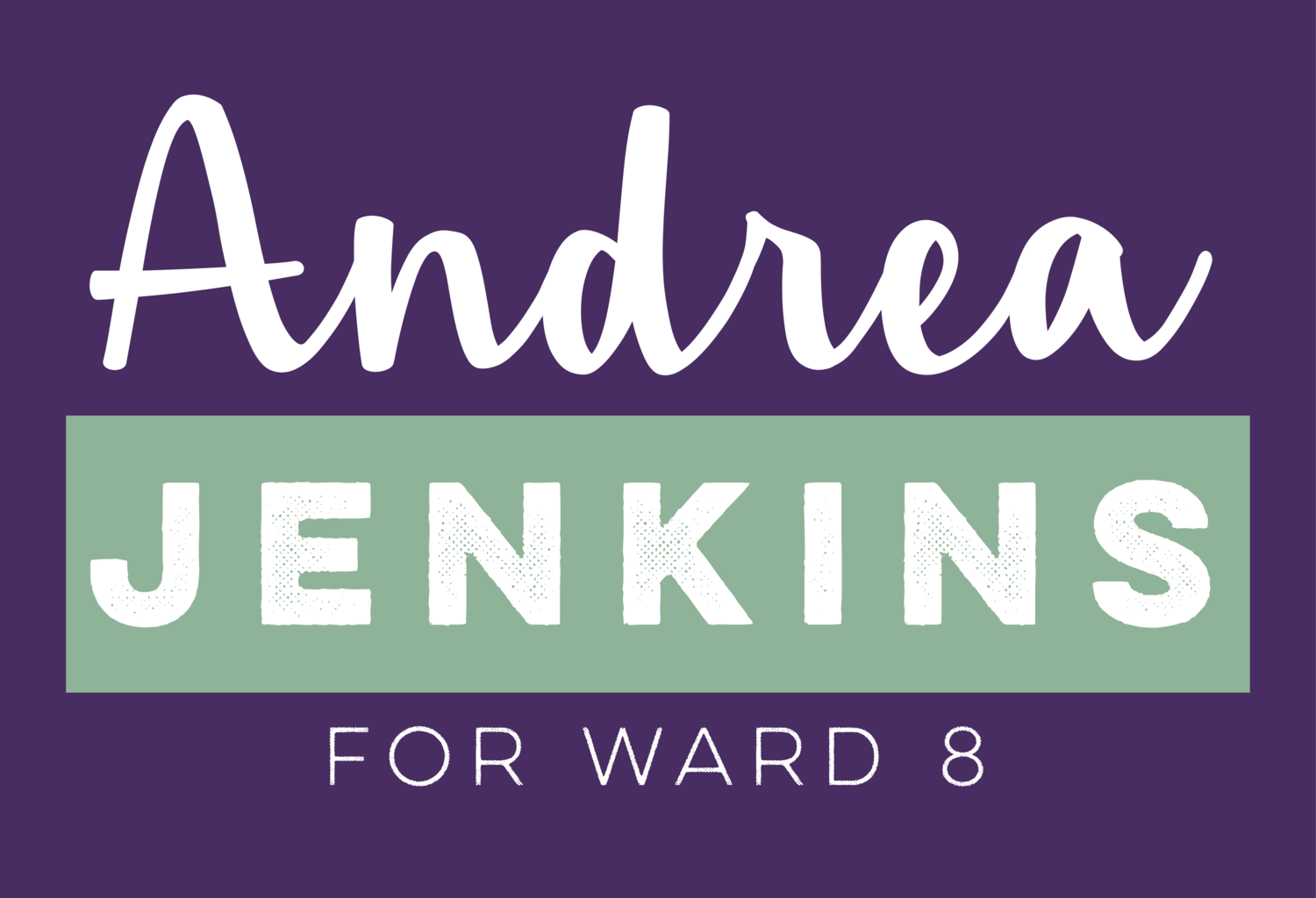VISION
Public Safety
Public safety should be a continuum of services and responses determined by the community, including:
a professional, well-trained, highly accountable, community-controlled police force to investigate crimes and hold people accountable for breaking the law
a separate mental health response to address mental health crises without the use of force
addressing economic inequities, including the lack of affordable housing
Housing
Rent stabilization is one part of a broad range of programs and strategies to solve our housing crisis. Other important methods include:
developing policies that support tenants’ rights to purchase their homes
creating more homeownership programs, especially for African Americans and other historically marginalized groups
encouraging a variety of housing to be built and maintained, such as SROs (single room occupancy) and naturally occurring affordable housing
a compassionate approach to people experiencing unsheltered homelessness
Environment
We must address climate change directly and with urgency, with a focus on justice for historically marginalized people. Important initiatives include:
creating community solar power projects, like the solar garden at Sabathani Community Center, a joint project with the Center for Energy and the Environment
developing green jobs—employment in growing sectors like clean energy
Andrea’s statement on the Minneapolis City Council’s votes
related to the Roof Depot site:
Recently, the City Council voted to move forward with a contract to demolish the Roof Depot building in the East Phillips neighborhood. To be clear, there are never easy votes on this council, and this was no exception.
The issues of environmental racism are very real, and the East Phillips neighborhood has borne the brunt of several decades of environmental harm. I know that many people believe that this action continues to contribute to that harm. But I believe that it is and can be a significant redress to that harm that has been egregiously perpetrated for years.
The proposed compromise offered, negotiated directly with members from the East Phillips Neighborhood Initiative (EPNI), will include solar gardens to provide low-cost alternative energy options for surrounding neighbors; it accelerates enhanced tree canopy plantings and pedestrian and bike lane improvements; and it funds a job training facility to help create full-time, living wage career opportunities for residents. The plan provides EPNI with three acres to develop an urban farm, free and clear, with commitments to remediate the entire site of toxic chemicals.
This in my mind is a win for the EPNI community, the city, and the metro area broadly. The water maintenance facility ensures that we have 55 million gallons of clean and safe water per day—which totals 16.8 billion gallons of drinking water every year for over 500,000 residents in Minneapolis and eight suburbs. The current facility is over 100 years old, is not ADA accessible, and is not large enough for the city that we have grown to be. This investment will help build a stronger, more resilient community.
38th and Chicago
“The murder of George Floyd on May 25th at the intersection of 38th and Chicago involving four Minneapolis Police Officers forever memorialized the landscape of our community... [which] experienced tragedy, pain and devastation like never before. The vision to see 38th Street thrive has now evolved into being the epicenter for a global racial justice movement and becoming once again the birthplace of black and brown excellence in Minneapolis.”
—excerpt from The 38th Street THRIVE Plan
Initiated by Council Vice President Andrea Jenkins, the 38th Street THRIVE Plan is intended to preserve the legacy and heritage of the local African American community. It was created by residents, business owners, government officials, and other partners in collaboration with the Department of Community Planning and Economic Development.
